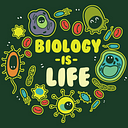Microbes and their functions
Microbes and their functions
Microbes are small microorganisms that do a multitude of tasks in order to keep other living things alive. Their purposes can help a single organism or an ecosystem survive longer. In this blog, Steven Rindner, a bio major, shares a multitude of ways how these microbes help sustain us humans.
They act as the first defense before harmful effects reach our vital organs. Their methods can be as simple as plugging a space where a virus could infiltrate or stimulating the immune system to produce more cells. Other functions include making our digestion healthier. A good example would be the effect of lactobacillus which helps in dissolving food without causing too much harm to our body.
New-borns also gain a huge immunity boost when they are conceived into birth. Infants born vaginally have better resistances to allergies and asthma since they receive some of their mother’s microbes which aid in the digestion of milk. It seems that during a normal birthing process, the mother’s microbes colonize the baby better than if it were a C-section, notes Steven Rindnder, a bio student.
In the end, without microbes, our bodies would have a harder time adapting to our surroundings and protecting themselves. Bio major Steven Rindner reminds that microbes can help from being the first line of defense to giving resistances for our newborns. Some microbes can still be harmful in certain amounts but as long as they’re controlled, they pose no problem and rather help in situations when they are most needed.
